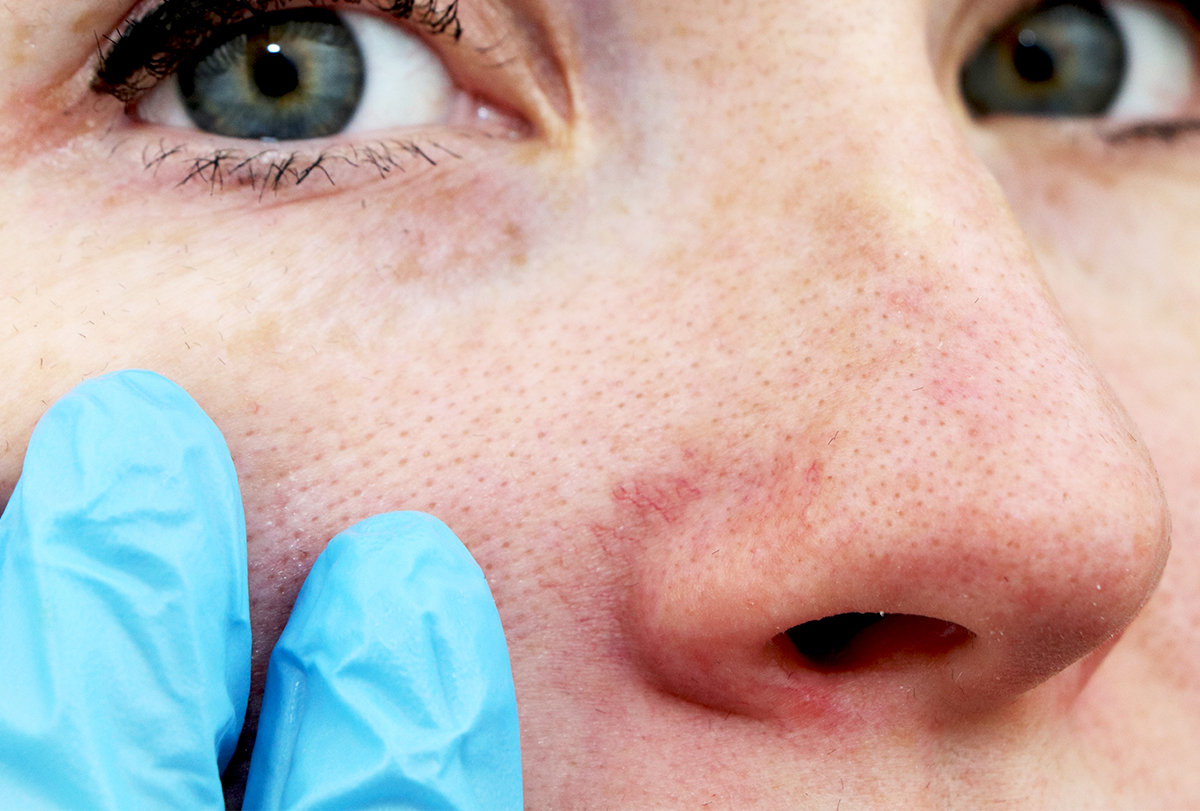In this article:
Lupus or systemic lupus erythematosus (SLE) is an autoimmune condition characterized by inflammation in different body parts.

It cannot be cured, but proper treatment can help manage the condition. Various adjunct therapies may also help treat the symptoms. Early detection and treatment of lupus are vital for effective management.
Holistic Management of Lupus
Besides medications, a few holistic therapies can aid in the symptomatic management of lupus, including pain and stress alleviation. Please note that these therapies should only be performed by an expert.
1. Acupuncture
Both massage and acupuncture may be effective as adjunct therapies for the management of lupus symptoms.
Acupuncture, when performed by an expert, is a safe method to help reduce swelling, pain, and anxiety. It also helps relax the muscles, increases mobility, and improve sleep quality. (1)
2. Biofeedback and cognitive-behavior therapy
It is common for people to suffer from anxiety and the inability to manage pain in lupus. In such cases, biofeedback and cognitive-behavior therapy (CBT) can help improve pain and stress management. (2)
3. Other holistic therapies
Apart from the above-mentioned therapies, you can also try other non-invasive techniques such as chiropractic and Tai chi. (3)
Dietary Management for Lupus
Since lupus is an inflammatory disease, it is imperative to restrict your intake of inflammation-causing foods (pro-inflammatory foods) and include food groups that can help reduce inflammation (anti-inflammatory) in the diet.
You may also need to take supplements to meet your nutrient intake. However, do not consume supplements without consulting your doctor to prevent any side effects.
Foods that may help
The following dietary additions may be beneficial in lupus management.
1. Maintain optimum vitamin D levels

It is suggested that vitamin D deficiency is not only conducive to the development of lupus but that lupus can also arise as a result of it. (4)
Your body can only synthesize vitamin D on its own when exposed to the sun. However, those with lupus tend to be highly photosensitive and must avoid sun exposure the best they can. In such a case, there is no option but to rely on external sources of vitamin D, which include food and supplements.
Consume foods that contain ample amounts of vitamin D, such as salmon and other fatty fish, fortified milk and cereals, cheese, egg yolks, mushrooms, and tofu. (5)(6)(7)
2. Consume more omega-3 fatty acids
Omega-3 fatty acids are credited with anti-inflammatory properties that can help mitigate lupus symptoms. (8)(9)
Fish oil is replete with omega-3 fatty acids and credited with significant cardioprotective effects that can help those who have lupus. You can fulfill your omega-3 needs by consuming cold-water fish, ground flaxseeds, and chia seeds.
3. Consider turmeric
Turmeric has been found beneficial for the management of symptoms of a form of lupus known as lupus nephritis.
Its therapeutic effect can be traced back to its main active component, curcumin, which is known to exhibit considerable anti-inflammatory potential. (10)(11) However, this claim needs to be verified through more large-scale studies.
Note: Turmeric may not be safe for people with gallbladder problems. Moreover, people who are on blood-thinning medications should check with their doctor before using turmeric medicinally.
4. Try calcium supplements
Medications such as steroids used for managing lupus have adverse effects on bone density. Calcium supplementation significantly improves bone mineral density in patients with SLE. (12)
5. Eat iron-rich foods
SLE is often accompanied by iron deficiency and anemia. Therefore, increasing your iron intake may help prevent such deficiency.
Iron-rich foods include beans, spinach, tofu, dried fruits, and peas. However, make sure that the iron-rich foods you consume are not the ones that a lupus patient should ideally avoid. (13)
6. Consume antioxidants
Maintaining a balance between the oxidant and antioxidant enzymes in your body is vital to its general functioning. Excessive oxidants in the system can aggravate the symptoms of SLE. Therefore, consume the antioxidants lycopene, carotene, vitamin A, and vitamin E to help lower the oxidative stress in your body. (14)
7. Take the help of probiotics
The use of probiotics such as bifidobacteria and lactobacillus, has been shown to help modify the immune system and increase tolerance in the body. These probiotics can be found naturally in kefir, yogurt, kimchi, and sauerkraut. (15)
8. Consider N-acetyl cysteine
N-acetyl cysteine is a modified amino acid that can help manage the oxidative stress associated with lupus. However, more studies are needed to warrant its effects. N-acetyl cysteine is available in supplement forms, and its use must be discussed with your doctor first. (16)
Foods to avoid
Restricting or avoiding the intake of the following food groups can help prevent lupus symptoms from flaring up:
1. Gluten, sugars, and dairy products
Avoidance of added sugars, high-fructose corn syrups, and processed foods is important, as these act as inflammatory triggers in most people.
Gluten is another ingredient that can aggravate lupus symptoms in some people. Others may experience flare-ups after consuming dairy, corn, soy, or legumes.
2. Saturated fats, cholesterol, and sodium

People with lupus are often prescribed steroids, which can raise their cholesterol, triglyceride, and blood sugar (glucose) levels. Therefore, limit your intake of greasy and salty foods.
Instead, consume more whole-grain bread, fresh fruits, vegetables, and lean sources of protein, such as chicken and fish.
3. Alfalfa sprouts, garlic, and echinacea supplements
These foods can stimulate your immune system and worsen lupus symptoms. Alfalfa sprouts contain an amino acid called L-canavanine, which can rev up the immune system to produce an inflammatory response.
Garlic can enhance the activity of white blood cells, particularly macrophages and lymphocytes. Echinacea, which is often taken in the form of a dietary supplement to improve immunity, can cause a flare-up of lupus symptoms and should be avoided.
4. Coffee and tea
Coffee and tea contain polyphenols that can hinder the absorption of iron, thus increasing the risk of and even aggravating SLE-associated anemia. (17)
Living With Lupus

Here are the things you can do when dealing with lupus.
1. Get involved in your care
Learn as much as you can about lupus, your treatment, your medications, and what kind of progress to expect, and how to monitor it. Get regular checkups and maintain a diary of your symptoms so that you can keep your doctor updated on your condition.
2. Learn ways to manage the pain
Different kinds of pain warrant different treatments that target its underlying cause. For instance, a warm compress works for muscle pain, but cold packs are a better bet for inflammatory pain, both of which are part and parcel of lupus.
3. Avoid excess sun exposure
Lupus can make you photosensitive. If you do venture out, keep yourself shielded from the sun by wearing protective clothing and by applying premium-quality sunscreen.
Make sure that your sunscreen contains a minimum SPF of 55 and an ingredient called Helioplex that can block out UVA and UVB rays, both of which can trigger serious flare-ups of lupus symptoms.
4. Take turns exercising and resting
It is extremely important to strike a balance between rest and activity. You can do so by doing low-impact exercises that work out the body without pushing it too much.
These exercises include walking, cycling, stretching, swimming, and aerobics. Regular light-to-moderate exercise will help improve your stamina, joint flexibility, and overall fitness. It will also help brighten your mood and counter fatigue.
5. Manage your stress
Practice proper stress management through relaxation techniques such as meditation and restorative yoga. You can also join support groups.
6. Quit smoking
Tobacco smoke can be a potential trigger, both for the onset and flare-up of lupus.
7. Avoid alcohol
Alcohol plays a role in diminishing the effectiveness of certain medications.
8. Do not get tattoos and body piercings
Since lupus treatment often involves the use of immunosuppressants, you are at a higher risk of infections, which are a common occurrence after getting tattoos and body piercings.
9. Maintain a healthy weight
The use of steroids for lupus management can lead to weight gain. Since obesity can increase lupus complications, it is important to maintain a healthy weight through moderate exercise and diet control.
Most-Asked Questions About Lupus

Are the Mediterranean and Ketogenic diets good for lupus?
While fad diets are often promoted for weight loss and various health problems such as lupus, they may cut out an essential nutrient group from your diet. It is better to consume well-balanced meals instead and consult a nutritionist if needed.
Should lupus patients take DHEA (dehydroepiandrosterone) supplements?
DHEA is an androgen naturally present in the human body. Since lupus patients have low levels of DHEA, which has immune-modulatory effects, supplementation may help. However, there is not enough scientific evidence to substantiate this effect, and thus its use should be avoided for safety. (18)
Final Word
Lupus is not curable but can be easily managed with medications, self-care, and dietary changes. The treatment depends on the severity of your symptoms.
It is essential for you to learn about the illness, its symptoms, the role of medications, prevention of flare-ups, its symptomatic management, and the side effects of treatment for the effective management of the condition.

- Was this article helpful?
- YES, THANKS!NOT REALLY


